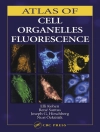How Do We Treat? Hematology and Oncology have seen rapid progress and advances during recent years. Increased knowledge of tumor biology, epidemiology, molecular genetics, growth reg- lation, and cellular functions has led to novel therapeutic paradigms. Targeted trea- ment approaches, antibodies, immunotherapy, and other new techniques complement classic chemotherapy, radiotherapy, and surgery. Patients are increasingly well educated as web-based information on diagnostic and therapeutic options as well as quality ma- agement and tumor outcome data are readily available. In this dynamic and fast-paced environment, it is of central importance to base clinical decisions and medical practice on the best available evidence. Continuous quality ma- agement, with clinical process documentation, standardization, and evaluation, leads to improved patient care and long-term outcomes. For these reasons, we have started to systematically capture and evaluate data on diagnosis, treatment, and outcomes of p- tients with solid tumors and hematological neoplasms at the Freiburg University Med- cal Center. We have developed standard operating procedures, clinical pathways, and diagnostic and therapeutic processes, following the principles of “Good Clinical Pra- tice.” Tese processes (e.g., detailed protocols for chemotherapy application, treatment fowcharts, clinical pathways) are continuously tested and validated in clinical practice.
Tabela de Conteúdo
Principles of Medical Oncology.- Special Diagnostics.- Pharmacology and Pharmacotherapy.- Supportive Treatment.- Particular Treatment Procedures.- Hematology and Hemostasis.- Hematological Neoplasia.- Medical Oncology.- Hematological and Oncological Emergencies.- Standard Operating Procedures (SOP).- Standardized Treatment Protocols.












